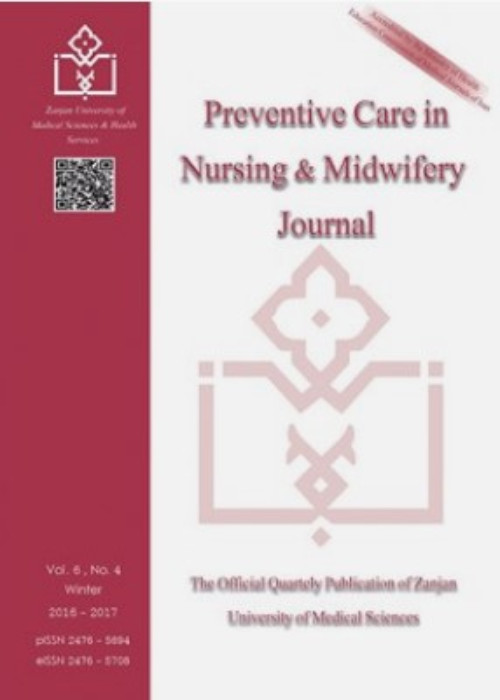Pregnancy Adaptation and its Association with Attachment Styles in Wanted and Unwanted Pregnancies
Physical and psychological problems and stressors sometimes impair the human adaptation and lead to maladaptive behaviors that may interfere with pregnancy acceptance and fetal communication. On the other hand, a parent's attachment style plays a role in the creation of child insecure attachment style and an irreplaceable context for emotional and social development. It continues until the adulthood and affects the individual ability in various contexts as a defective cycle.
Therefore, the present study was designed and conducted to determine the rate of pregnancy adaptation and its association with maternal attachment styles in both wanted and unwanted pregnancies.
The study was a descriptive and comparative research on 178 pregnant women who visited health centers of Zanjan, Iran in 2017. The data collection tool included the demographic data checklist, Adult Attachment Scale (AAS) by Hazen & Shaver, and the prenatal self-evaluation questionnaire (PESQ) by Lederman for measuring the pregnancy adaptation, and it was completed by the self-report. Data were analyzed using chi-square, Mann-Whitney, independent t, Spearman, and linear regression tests via SPSS 16.
The median (interquartile range (IQR)) of the total score of pregnancy adaptation in the wanted pregnancy group 118 (13.5) was lower than the unwanted pregnancy group 244 (33.5), indicating better adaptation in the wanted pregnancy group. Secure attachment style was significantly higher in the wanted pregnancy groups than the unwanted pregnancy group (p˂0.001). In the unwanted pregnancy group, there was an inverse relationship between secure attachment style and pregnancy self-assessment score (r=-0.335 and p=0.001) (A more secure attachment style and lower self-evaluation score indicate higher pregnancy adaptation); and a positive relationship between avoidant attachment style and prenatal self-evaluation score (r=0.248 and p=0.019).
Since the increase in secure attachment style was associated with a decrease in prenatal self-evaluation score, or in other words, was associated with an increase in adaptation with pregnancy, education and counseling for improving secure attachment styles is suggested to reduce adverse consequences of unwanted pregnancy and improve the children's psychological health.
- حق عضویت دریافتی صرف حمایت از نشریات عضو و نگهداری، تکمیل و توسعه مگیران میشود.
- پرداخت حق اشتراک و دانلود مقالات اجازه بازنشر آن در سایر رسانههای چاپی و دیجیتال را به کاربر نمیدهد.


